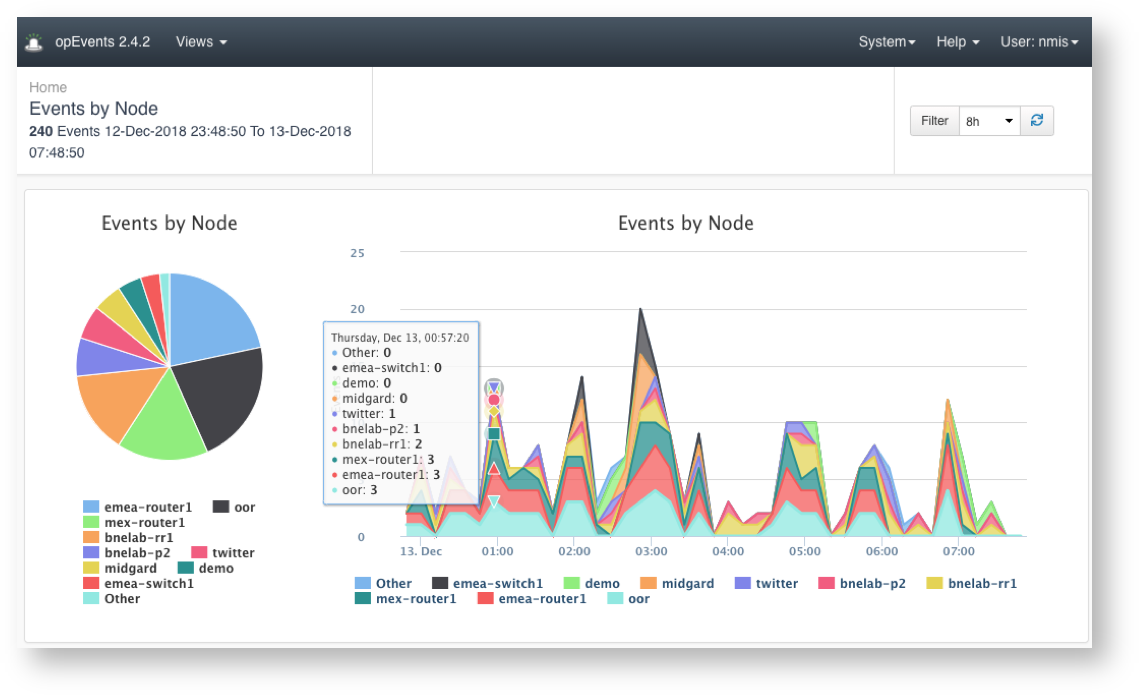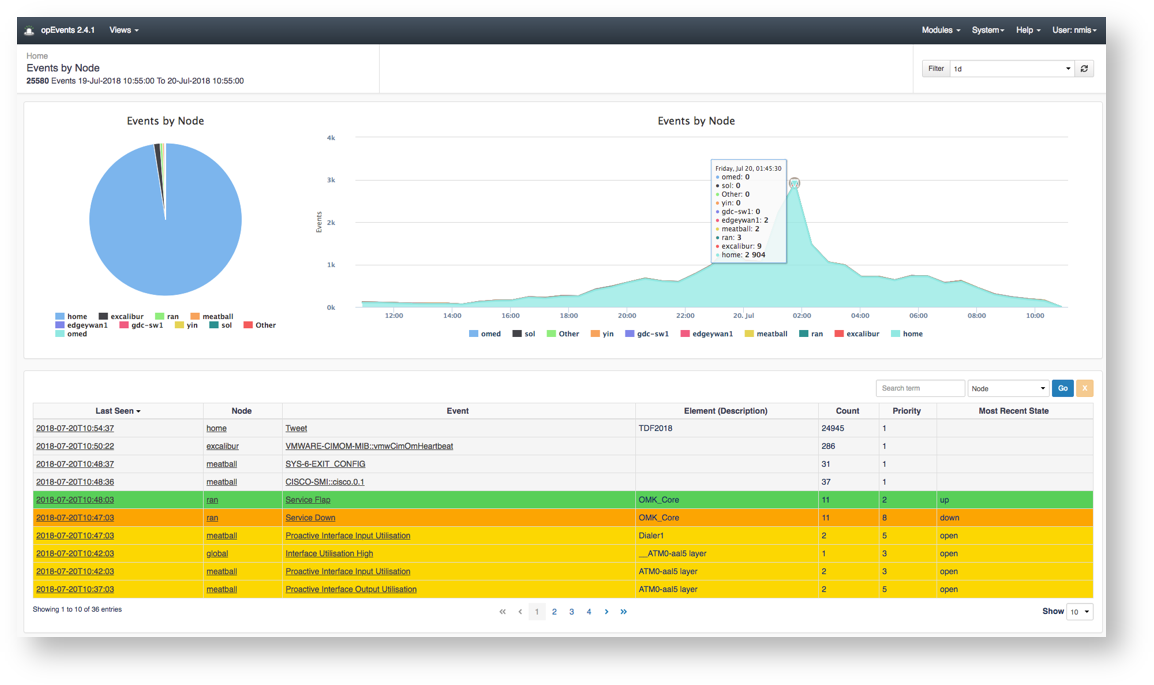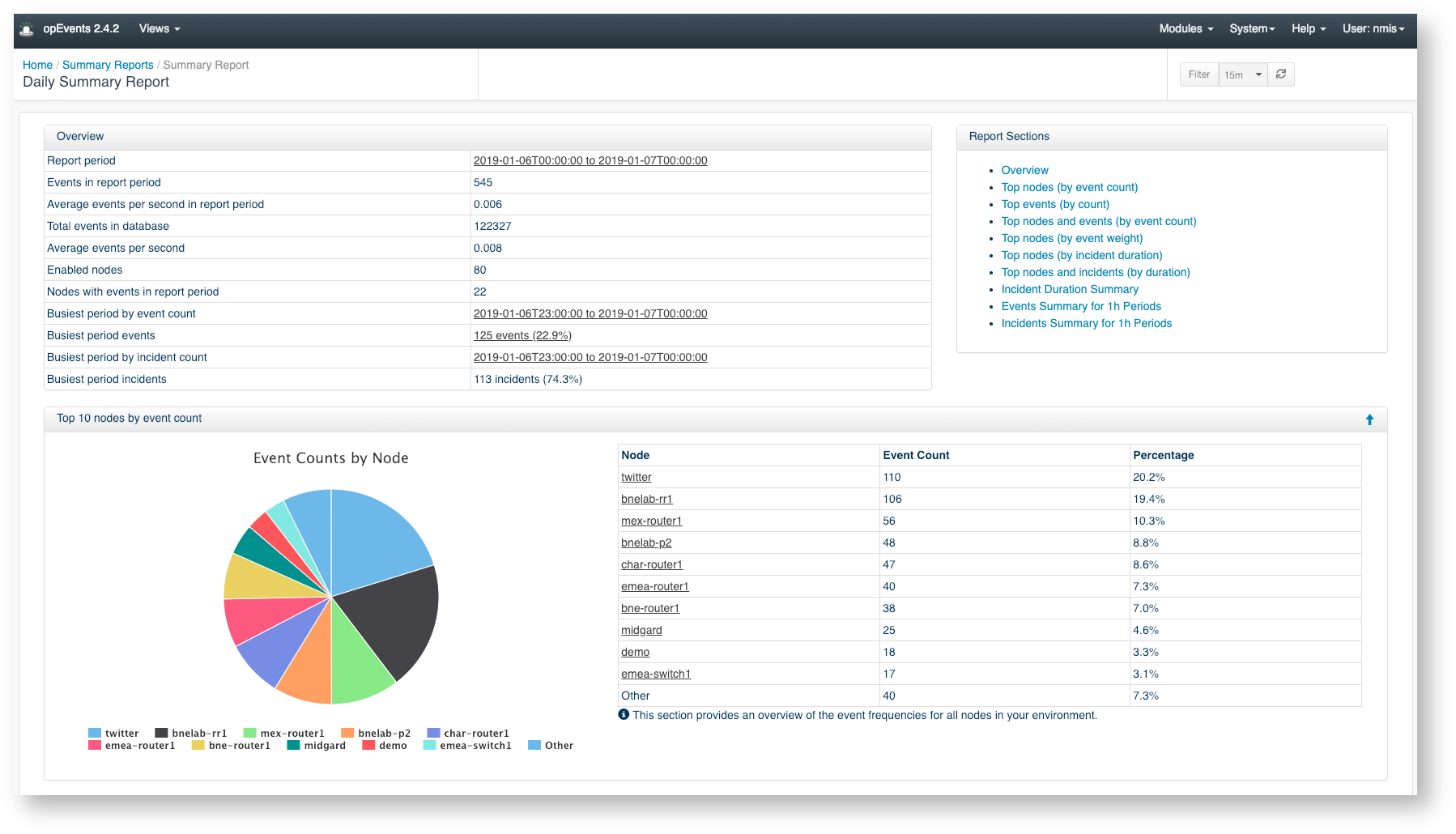opEvents is an industry leading event management system based on the Information Technology Infrastructure Library (ITILv3) best practices for service management. A multi-level event manager, opEvents automates event handling through extendable policies that enrich, correlate, organize and manage all the events in your environment. opEvents allows you to automate the diagnostics of your events and leverages intelligent automation to remediate your events. Configure your business policies to reflect your business environment. Set up to send alerts via SMS or email while following your escalation rules to one or more contacts. Outline your business hours to follow escalation or hierarchy differences and also allow for planned outages. Completely customizable notification settings that alert at the frequency that matches your demands. opEvents provides a centralised logging service for the purposes of operations, compliance and auditing. Complete management (centralised storage and audit capability) of logs from NMIS, applications, active directory, devices and cloud infrastructure. Enrich your network events with logs from multiple sources. Identify the event, enrich the data stream, and generate detailed notifications that reflect your business environment. Use the GUI to quickly alter your policies. Create business policies that reflect your operational hours, organizational hierarchy and prioritize the events that are important to your business. Suppression and highlighting lists to ensure the right events generate notifications. Stateless and stateful events are applicable and events can be related to nodes. A set of normalized node properties are extracted and applied to the event. Events will automatically close if the cause has been resolved, action policies can be created to resolve known events automatically. What is opEvents?
What does opEvents do?
But Why?
opEvents will reduce mean time to resolution (MTTR), shorten outages, improve overall performance while reducing the cost of managing your IT environment. Using process automation, you can improve your service level while maintaining a more reliable network.
Features?
Multiple Sources for Event Generation
- Syslog Parsing.
- SNMP Traps.
- Log File processing
- opEvents RESTful API.
- NMIS event logs.
- Custom JSON sources.
- Tivoli log file.
Filter and Normalise Events
- Black list rules that will remove to bit bucket certain events.
- White list rules that ensure that events are processed.
- Archive events to ensure compliance standards are met.
- Process the events based on rules.
- opEvents relates nodes to events.
Events can be stateful - Node down, Node up etc.
Events can also be stateless - Node configuration changes.
A set of normalized properties are extracted and applied to the event.
Enrich and Correlate Events
- Node details are automatically extracted from NMIS.
- opEvents utilizes additional information about nodes from NMIS to enrich the event.
- Event rules define stateful properties.
- Properties can be manually edited and updated
- Log Forensics.
Combination rules can be defined to combine events from many sources.
Combination rules help identify patterns of behaviour in your network.
Re-occurrence rules can be defined for specific events or time periods.
Event and log data consolidation
- Enrich events with extra information from multiple sources.
- Event correlation allows for a new event created incorporating many events.
- Multiple correlations are configurable as 'clauses'.
- Event deduplication will reduce overall notification while retaining all information.
- Event storms are quietened with deduplication.
- A single pane of glass to view and clear events.
Planned outages – removing alerts during planned outage periods
Automation
- Events will automatically close if a cause is resolved.
- Event Action Policy provides a flexible mechanism for reacting to events.
- Event actions are customizable to resolve common events automatically.
Execute a user-defined script, possibly capturing the output.
- Actions can automatically change routing rules.
Node status can be called when an event is current.
- Escalation policies will stop if issue is resolved.
Centralized Logging Solution
- Provide centralized logging services for the purposes of operations, compliance and audit.
- Centralized collection and archive of logs.
- Device Log Management.
- Audit and event logs.
- Active Directory Logs auditing.
- Applications Log Management.
- Cloud Infrastructure Log Monitoring.
How is it built?
opEvents is supplied as a stand-alone download or part of the Opmantek virtual appliance.
Licensing
opEvents is licensed by the number of nodes that are monitored not the quantity of events created, no surprises with billing.



